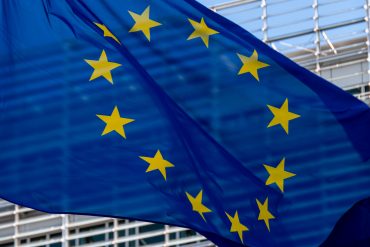
Meta Challenges €200 Million EU Fine Over Privacy Consent Model
6 minute read

European data privacy regulations force Meta to defend its advertising model as tech giant faces mounting compliance pressure
Key Takeaways
- Meta faces €200 million fine from the European Commission for its “pay-or-consent” model that violated Digital Markets Act requirements between March and November 2024.
- Company challenges ruling as “incorrect and unlawful” and plans to appeal, arguing it should be allowed to offer personalized ads to users who opt out of paid subscriptions.
- Daily penalties of up to 5% of global turnover threaten Meta if it fails to comply with cease-and-desist order within 60 days, highlighting escalating regulatory pressure on Big Tech.
Introduction
Meta mounts a defiant challenge against European regulators over its controversial advertising model, marking a significant escalation in the ongoing battle between Big Tech and EU privacy enforcement. The social media giant labels the European Commission’s €200 million fine as “incorrect and unlawful” while preparing a formal appeal against the Digital Markets Act ruling.
The dispute centers on Meta’s pay-or-consent model, which offers users a binary choice between accepting personalized advertising or paying monthly fees to avoid targeted ads. European regulators argue this approach fails to provide genuine privacy alternatives, while Meta contends it represents a fair balance between free services and user choice.
Key Developments
The European Commission imposed the €200 million penalty on April 23, 2025, targeting Meta’s violation of Article 5(2) of the Digital Markets Act. The fine covers an eight-month period from March 2024 to November 2024, when Meta operated its contested advertising model.
Meta introduced its pay-or-consent framework in November 2023, charging users €9.99 monthly to avoid personalized advertisements. The model required users to either continue using services for free while accepting targeted ads or pay subscription fees for ad-free experiences.
By November 2024, Meta attempted to address regulatory concerns by offering a third option promising less personalized advertising. However, the European Commission continues assessing whether this revised approach meets DMA compliance requirements under Article 5(2).
Market Impact
The €200 million fine represents a relatively modest penalty compared to Meta’s substantial revenue streams, falling well below the theoretical maximum of 10% of worldwide turnover that regulators could impose. However, the financial stakes escalate significantly with potential daily penalties reaching 5% of Meta’s average daily global turnover.
Meta faces additional regulatory pressure as the company must comply with a cease-and-desist order within 60 days or trigger additional periodic penalties. The European Commission also imposed a separate €500 million fine on Apple for different DMA violations, demonstrating the broad scope of regulatory enforcement.
The regulatory landscape shift affects Meta’s European operations, where the company argues it remains “the sole company in Europe restricted from offering both subscription-based and free ad-supported services.” This constraint potentially limits Meta’s revenue optimization strategies in a crucial market.
Strategic Insights
The dispute highlights fundamental tensions between digital advertising business models and European privacy regulations. Meta’s challenge reflects broader industry resistance to regulatory frameworks that restrict traditional data monetization approaches while demanding genuine user choice alternatives.
The case demonstrates how the Digital Markets Act and General Data Protection Regulation create overlapping compliance requirements for designated gatekeepers. Companies must navigate both competition law obligations and privacy protection standards, often requiring substantial business model adjustments.
Meta’s regulatory troubles extend beyond financial penalties to operational constraints that may force innovation in advertising delivery and user consent mechanisms. The company faces pressure to develop new revenue streams that align with EU privacy expectations while maintaining service accessibility.
Expert Opinions and Data
Data protection authorities across France, Denmark, and Germany have endorsed subscription alternatives for personal data use, providing some regulatory backing for Meta’s approach. However, the European Data Protection Board emphasizes that large platforms must ensure users’ data choices remain meaningful rather than coercive.
According to The Register, Meta argues the imposed free, reduced-ad model results in “poorer outcomes” for all stakeholders. The company maintains its model represents a legitimate attempt to balance user privacy with service sustainability.
Consumer advocates view the Commission’s action as part of broader efforts to regulate Big Tech, emphasizing transparency and accountability in data handling practices. Industry experts suggest the ruling may inspire global changes in how technology companies approach user privacy and data monetization.
Conclusion
Meta’s appeal against the European Commission’s ruling establishes a critical precedent for digital advertising regulation under the Digital Markets Act. The company must navigate immediate compliance requirements while challenging the legal foundation of the decision through formal appeals processes.
The dispute reflects deeper structural tensions between American technology companies and European privacy regulations, with Meta’s defiant stance signaling continued resistance to regulatory constraints on traditional advertising models. The outcome will likely influence how other digital platforms approach user consent and data monetization across European markets.





